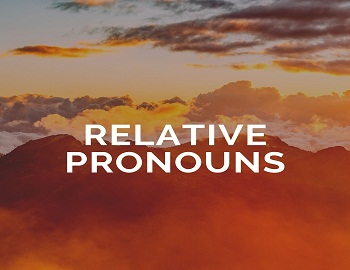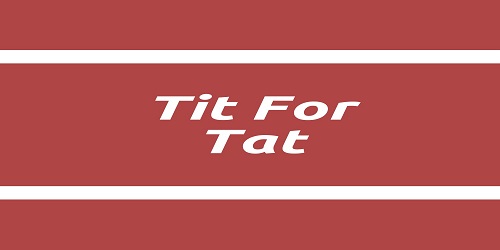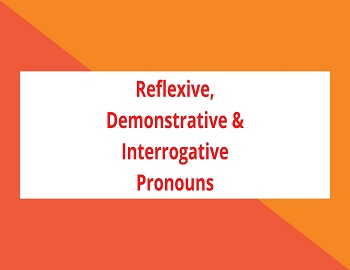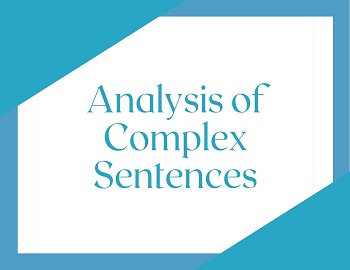Relative Pronouns:
Pronouns that refer to some nouns going before them are called Relative Pronouns. The Nouns going before Relative Pronouns which they to are called Antecedents; as, Those who hate their neighbour are sinful, Here in the above sentence “who is the Relative Pronoun and ‘those‘ is referred to by ‘who‘, which is Antecedent.
The chief Relative Pronouns are- who, whose, whom, which, that, etc.
Note 1: Relative Pronouns who, whose and whom are used for persons and higher animals both in the singular and plural; as,
- There goes the man who is pick-pocketed.
- Here is the woman whose purse is lost.
- Those whom God loves die young.
Note 2: The Relative Pronoun always agrees with its Antecedent in number, gender and person; as,
- It is he who is guilty.
- It is I who am guilty.
- It is you who are guilty.
In sentence 1 above, he is the Antecedent of Relative Pronoun ‘who‘. As the Antecedent is a Third-person singular number, the verb ‘is‘ is agreeing with it.
In sentence 2 above, ‘I‘ is the Antecedent of ‘who‘ so its verb ‘am‘ is agreeing with ‘I‘ in number and person.
Similarly in sentence 3, the Relative Pronoun ‘who‘ is agreeing with its Antecedent ‘you‘ in number, and person.
Note 3: A Relative Pronoun must be placed as near its Antecedent as possible; as,
| Incorrect | Correct |
|---|---|
| For sale a hen by a lady that lays an egg daily. | For sale by a lady a hen that lays an egg daily. |
| Wanted a tutor for a boy who is thirty years old. | Wanted for a boy a tutor who is thirty years old. |
Note 4: The antecedent of a Relative Pronoun cannot be in the Objective Case; as,
| Incorrect | Correct |
|---|---|
| Sohan’s words who is truthful are honoured everywhere. | Words of Sohan who is truthful, are honoured everywhere. |
| Those are Aditi’s garments who reads in fifth class. | Those are garments of Aditi who reads in fifth class. |
Note 5: The Relative Pronoun which is used for low animals, infants and lifeless objects both in singular and plural; as,
- It is the tale of fox which has lost its tail.
- The baby which is crying must be hungry.
- The table which you have purchased has a sunmica top.
Use of Relative Pronoun ‘that’:
(I) ‘That’ is used as Relative Pronoun in the restrictive sense for persons, animals and things; as,
- Boys that are sick have not attended the school.
- Uneasy lies the head that wears a crown.
- It is the running water that makes a valley.
(II) Use ‘that‘ after two antecedents, one requiring ‘who‘ and other requiring ‘which‘; as,
- The man and his cow ‘that‘ were near the border crossed over to Pakistan.
- The hunter and his dog that were hunting here had been devoured by a lion.
(III) ‘That‘ is used after an object of superlative degree or an adjective of number; as,
- Our form master is the best of all the teachers that are teaching us.
- The Gnages is one of the longest rivers that we have read so far.
(IV) Relative Pronoun ‘that‘ is used after words ‘same’, ‘only’, ‘any’, ‘nothing’, ‘none’, ‘all’; as,
- It is the same dog that has run mad.
- The only son ‘that‘ I had has expired in a bus mishap.
- Any body that puts in labour can succeed in his efforts.
- Nothing was left with him that could maintain his family.
- There was none that did not shed tears on the tragic death of a youth.
- All that glitters is not gold.
(V) Relative Pronoun ‘that‘ is used after Interrogative Pronouns ‘who‘ and ‘what‘; as,
- Who is there that has not to die one day?
- What is that you are laughing at?
(VI) Relative Pronoun ‘that‘ is used after a Negative; as, No person that is ideal can have success in life.
Remember: Use ‘as‘ as a Relative Pronoun after the words ‘such‘, the same; as,
- Such boys as are idle fail in their lives.
- He is the same boy as met us on our way to market.
Compound Relative Pronouns such as whatever, whatsoever, whoever, whosoever, whichever, whichsoever are always used without any antecedents; as,
- Whoever puts in labour meets with success.
- Whosoever makes a noise is turned out of the class-room.
- Whatever you say is hundred per right.
- Whatsoever a patriot does favours his country and countrymen.









Comments (No)